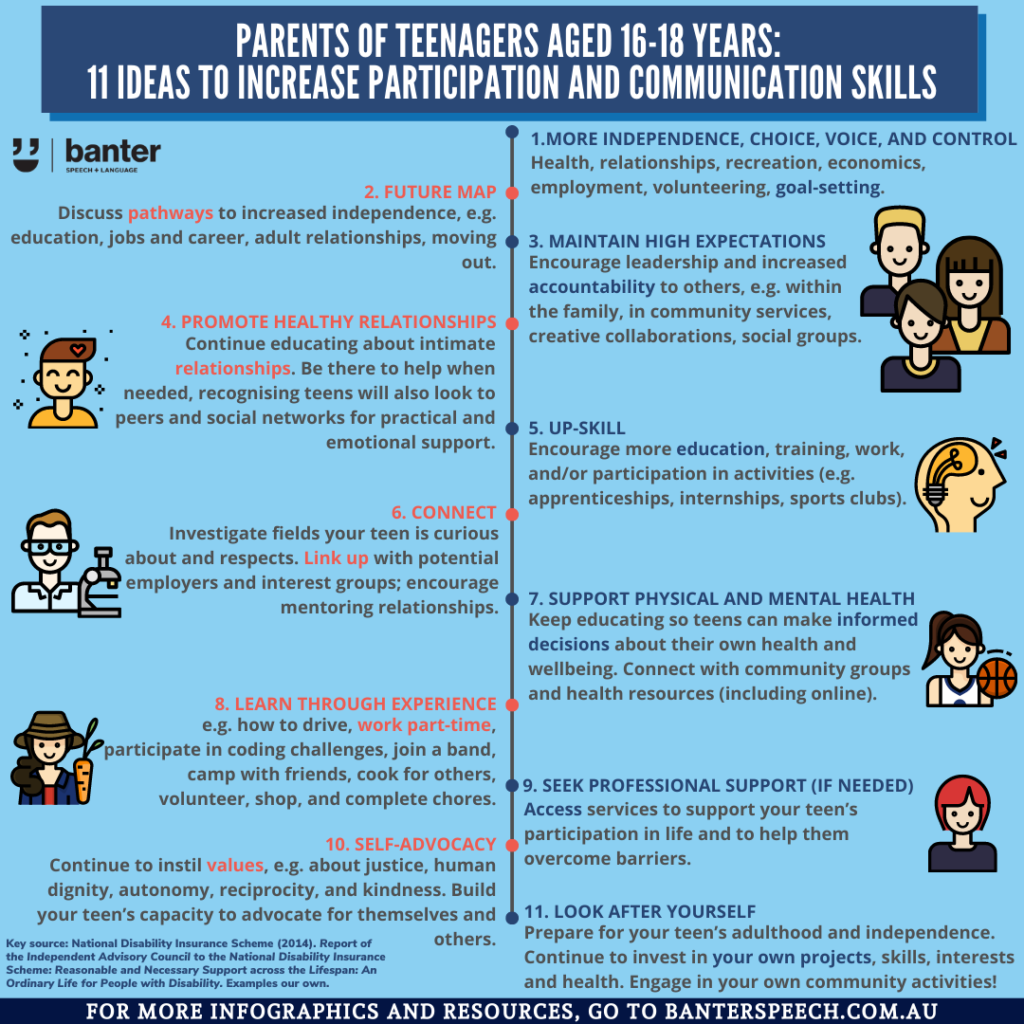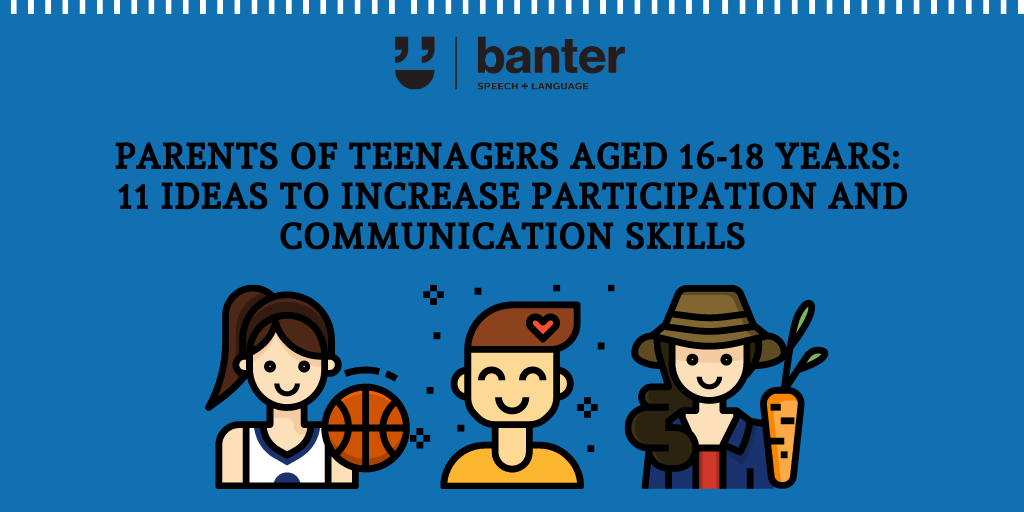This week, our speech pathologist, Juliana Li, gives us 11 ideas to increase the participation and communication skills of teenagers aged 16-18 years.
- More independence, choice, voice, and control. Health, relationships, recreation, economics, employment, volunteering, goal-setting.
- Future map. Discuss pathways to increased independence, e.g. education, jobs and career, adult relationships, moving out.
- Maintain high expectations. Encourage leadership and increased accountability to others, e.g. within the family, in community services, creative collaborations, social groups.
- Promote healthy relationships. Continue educating about intimate relationships. Be there to help when needed, recognising teens will also look to peers and social networks for practical and emotional support.
- Up-skill. Encourage more education, training, work, and/or participation in activities (e.g. apprenticeships, internships, sports clubs).
- Connect. Investigate fields your teen is curious about and respects. Link up with potential employers and interest groups; encourage mentoring relationships.
- Support physical and mental health. Keep educating so teens can make informed decisions about their own health and wellbeing. Connect with community groups and health resources (including online).
- Learn through experience. e.g. how to drive, work part time, participate in coding challenges, join a band, camp with friends, cook for others, volunteer, shop, and complete chores.
- Seek professional support (if needed). Access services to support your teen’s participation in life and to help them overcome barriers.
- Self-advocacy. Continue to instil values, e.g. about justice, human dignity, autonomy, reciprocity, and kindness. Build your teen’s capacity to advocate for themselves and others.
- Look after yourself. Prepare for your teen’s adulthood and independence. Continue to invest in your own projects, skills, interests and health. Engage in your own community activities, too!

Key Source: National Disability Insurance Scheme (2014). Report of the Independent Advisory Council to the National Disability Insurance Scheme: Reasonable and Necessary Support across the Lifespan: An Ordinary Life for People with Disability. Examples our own.
Related infographics:
- Focusing speech therapy on functional outcomes: a refresher
- Not about ‘fixing’: using the ‘F-word Framework’ to support children with communication disorders and their families
- Parents of children aged 0-5 years: 10 practical ideas to increase you child’s participation and communication skills
- Parents of children aged 6-12 years: 10 practical ideas to increase you child’s participation and communication skills
- Parents of children aged 13-15 years: 10 practical ideas to increase you child’s participation and communication skills

Hi there, I’m David Kinnane.
Principal Speech Pathologist, Banter Speech & Language
Our talented team of certified practising speech pathologists provide unhurried, personalised and evidence-based speech pathology care to children and adults in the Inner West of Sydney and beyond, both in our clinic and via telehealth.

